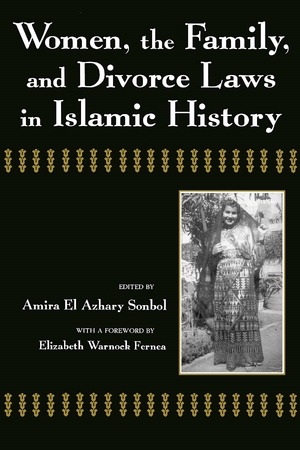"Amira Sonbol's book is the best of its kind. She sets our to describe a major problem and then gives solutions to that problem within the ethos and parameters of chat society. . . . A most important work."—Afaf Marsot, author of Women and Men in Eighteenth-Century Egypt
Description
In the first book to address the dilemma faced by Jordanian women in the workforce, Amira El-Azhary Sonbol delineates the constraints that exist in a number of legal practices, namely penal codes that permit violence against Muslim women and personal status laws that require a husband’s permission for a woman to work. Leniency in honor crimes and early marriage and motherhood for girls are other factors that extend the patriarchal power throughout a woman’s life, and ultimately deny her full legal competency.
Significantly, Sonbol notes that society’s accepting as “Islamic” the legal constraints that control women’s work constitutes a major barrier to any effort to change them, even though historically the Islamic sharia actually encourages women’s work, and despite the fact that Muslim women have contributed materially to their society’s
economy.
The author covers new ground as she effectively illustrates how Jordanian laws governing gender, family, and work combine with laws and legal philosophies derived from tribal, traditional, Islamic, and modern laws to form a strict patriarchal structure.
About the Author
Amira EI-Azhary Sonbol is associate professor of Islamic history, law, and society at Georgetown University. She is the author of The New Mamluks: Egyptian Society and Modern Feudalism, and The Creation of a Medical Profession in Egypt, 1800-1922, and is editor of Women, the Family, and Divorce Laws in Islamic History, all published by Syracuse University Press.
January 2003




